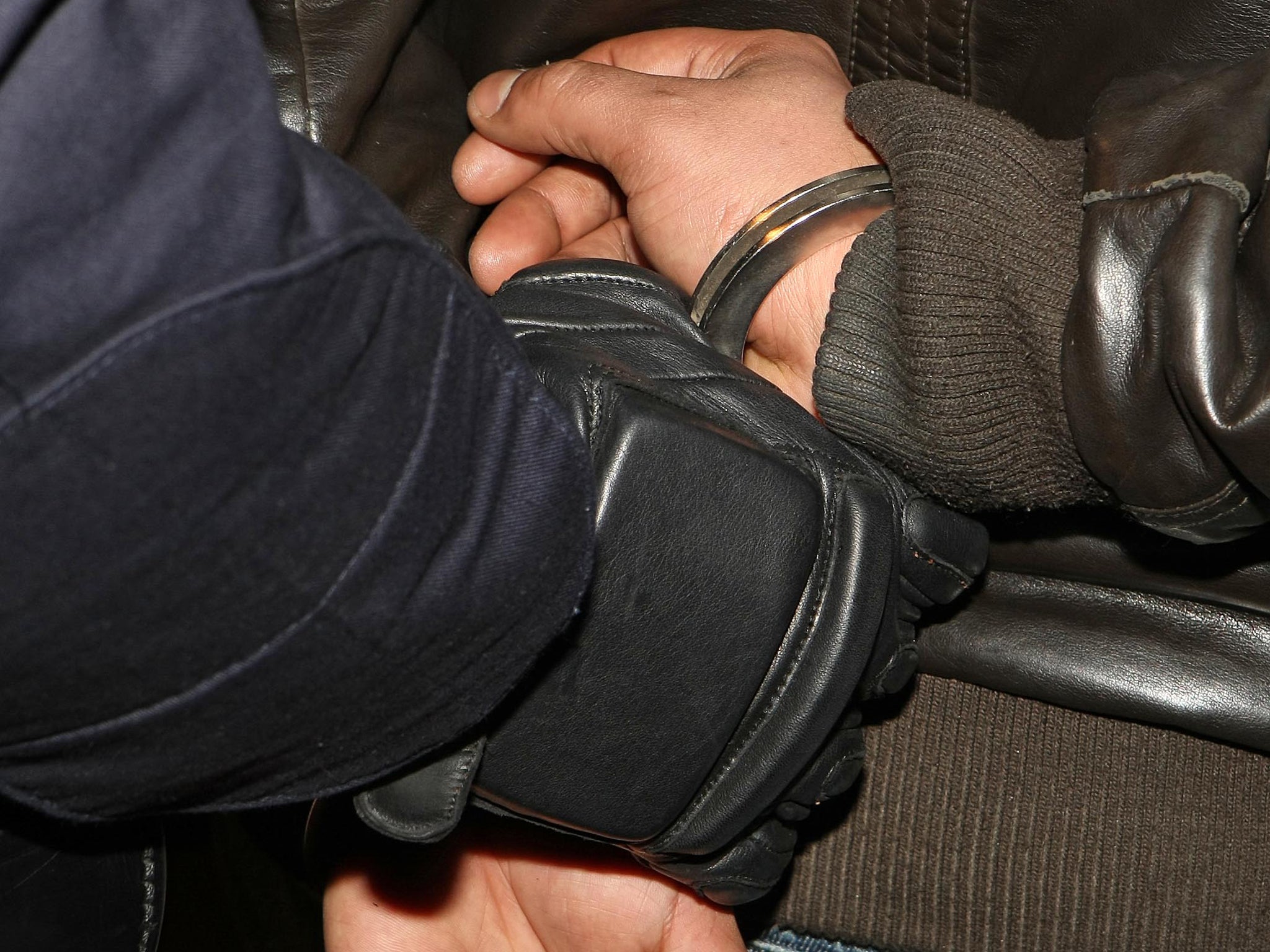More than 10,000 violent criminals escaped conviction in England and Wales last year after 'saying sorry'
Offenders instead dealt with by 'community relations'

More than 10,000 people who committed a serious violent crime last year were let off without a formal conviction, new figures show.
The offenders were instead dealt with by 'community resolutions', which range from apologies to offers of compensation.
The figures are based on Freedom of Information requests obtained from police forces in England and Wales by the Labour party.
According to the Association of Chief Police Officers (Acpo), community resolutions should only be used to deal with low level crime or anti-social behaviour and do not lead to a criminal record.
The punishment was introduced as a quicker way of dealing with less serious crime.
But in 2012, 10,160 were handed to criminals who committed serious violent crime - making up nearly 14 per cent in some police forces - as well as to 2,488 who committed domestic violence.
The number of community resolutions being issued in cases of violent crime has risen from 7,621 in 2010 to 8,523 in 2011.
However, the new figures show the largest increase was from 792 in 2008 to 5,173 in 2009.
Yvette Cooper MP, shadow home secretary, claims that police cuts have lead to the rise in the use of community resolutions, with officers now under more pressure with less resources.
"These figures are extremely serious," she said.
"There has been a massive increase in the number of serious and violent crimes dealt with just by community resolution ever since the police cuts started - breaking all the expert guidance and promises from ministers.
"Offenders who admit to serious and violent crimes - including knife crime, domestic violence, and serious assault - are increasingly being let off with no criminal record, no justice, and not even a caution. That's bad for justice, bad for victims, and goes against all the evidence."
A Home Office spokesman said: "Crime continues to fall - recorded crime is down by more than 10% under this Government and the independent Crime Survey for England and Wales shows crime is at its lowest level since records began.
"It is the responsibility of Chief Constables to ensure that community resolutions are used appropriately. Through crime maps and Police and Crime Commissioners, the public now have the means to hold them to account."
The Association of Chief Police Officers defended the use of restorative justice and community resolutions.
Greater Manchester assistant chief constable Garry Shewan, who speaks for Acpo on the subject, said: "Community resolutions, including restorative justice, offer clear benefits to both victim and offender, and give police flexibility to deal with a variety of offences effectively.
"Guidelines are in place to help forces decide where the use of community resolutions might be appropriate, but in every case, this decision will be victim led and above all reflect their views and wishes.
"While in the main they are used to deal with less serious offences, there is no simple formula.
"At times it may be necessary, and appropriate, to use such informal resolutions to deal with more serious cases. In such circumstances, it is far more than likely there will be a restorative justice element to the resolution.
"Many victims of crime tell us that they feel the criminal justice system and courts take over and they are left out, but meeting the offender can bring a degree of closure and help them to move on with their lives.
"Going through a restorative justice meeting has also been proven to have more impact on an offender than a prison sentence or a court punishment alone, as they see the consequences of their actions and so want to make changes in their future behaviour.
"In each force where restorative justice is offered to victims, specially trained officers will work hard with victims of crime to offer a resolution to their case that they are satisfied with.
"This will involve carefully assessing the specific circumstances, taking into account the relationship between victim and offender, and crucially, the vulnerabilities of the victim.
"We are clear that these cases should be judged upon their outcomes, not only for the victim, but the offender and wider community."
PA
